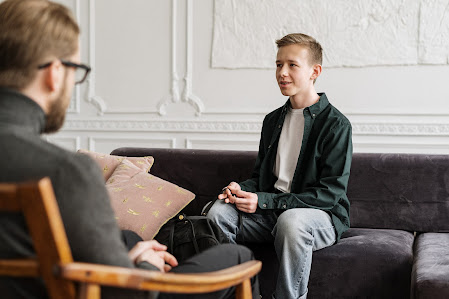Emotional Freedom: Taking Care of Your Mental Health on the 4th of July
Every year, the 4th of July brings a burst of patriotic celebration across the United States — fireworks light up the sky, grills fire up, families gather, and social media fills with red, white, and blue. But behind the celebration, many people experience feelings that don’t fit the festive narrative: anxiety, grief, overstimulation, alienation, or quiet reflection.
If the 4th of July feels emotionally complicated for you, you’re not alone — and you’re not wrong for feeling that way.
This year, let’s hold space for a different kind of freedom: emotional freedom. The freedom to feel what you feel. To set boundaries. To opt out. To care for your mental health, especially when it’s not part of the mainstream conversation.
🎆 Loud Noises, Big Crowds, and Hidden Stress
While many enjoy fireworks, others experience them as a source of distress — especially those with:
-
PTSD (especially veterans and trauma survivors)
-
Autism or sensory processing sensitivity
-
Anxiety disorders or panic attacks
-
Young children or pets who are easily startled
Loud noises, flashing lights, and late-night disruptions can lead to increased anxiety, sleep disturbance, and emotional dysregulation. You’re not overreacting — your nervous system is responding exactly as it’s designed to.
🧘 Try This:
-
Use noise-canceling headphones or calming playlists
-
Set up a “quiet space” in your home with soft lighting, weighted blankets, and grounding tools
-
Let neighbors know ahead of time if fireworks are triggering for you
-
Celebrate in other ways — like watching a movie, cooking a comfort meal, or stargazing
Mixed Feelings About Patriotism
The 4th of July is intended to celebrate national pride and freedom — but many people experience complex emotions around what that means.
For marginalized communities, this holiday can feel like a reminder of injustice, exclusion, or unfulfilled promises. That dissonance can lead to grief, anger, numbness, or frustration — especially for Black, Indigenous, LGBTQ+, disabled, and immigrant individuals.
🧠 Reframe the Day:
-
Reflect on your own personal definition of “freedom” — emotional, creative, spiritual, or relational
-
Honor the truth of American history and those still fighting for equality
-
Engage in acts of resistance or restoration — donate, volunteer, read from diverse voices, or rest as a form of reclaiming your space
🧨 Holiday Expectations & Emotional Boundaries
Like many holidays, the 4th of July can bring up family stress, social pressure, or emotional exhaustion — especially for people in recovery, grieving, or dealing with strained relationships.
You might feel obligated to show up to events you don’t want to attend or hide how you’re really doing. Remember: saying no is an act of emotional freedom.
💬 Give Yourself Permission To:
-
Decline invitations that feel draining
-
Leave early without guilt
-
Celebrate solo or with one safe person
-
Have a quiet day at home with no pressure to perform happiness
🕊️ Ways to Celebrate That Support Mental Health
If you want to engage with the day — but on your terms — here are a few gentle alternatives:
-
Reflect on a moment you chose freedom for yourself (like leaving a toxic relationship, starting therapy, or setting a boundary)
-
Take a nature walk, go stargazing, or enjoy time at the beach or park
-
Cook a meal that feels like comfort
-
Journal on the question: What does emotional freedom look like in my life?
-
Honor ancestors or loved ones who made your freedom possible
🌈 Final Thoughts: Redefining Freedom
Freedom is not just a political ideal — it’s a personal experience. The freedom to feel, heal, rest, and be safe in your own skin is sacred. And it’s something many of us are still working toward.
So this 4th of July, don’t feel pressure to conform to a mood or a meaning that doesn’t align with your heart. Let this be a day where you choose emotional honesty over performance, rest over resentment, and self-care over social expectation.
Because true freedom starts within.
🧡 Need support today?
-
Text HOME to 741741 for 24/7 crisis support (U.S.)
-
Call 1-800-273-TALK for the Suicide & Crisis Lifeline
-
Reach out to us at Enlightenment Counseling to schedule an appointment or consultation



Comments
Post a Comment